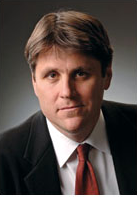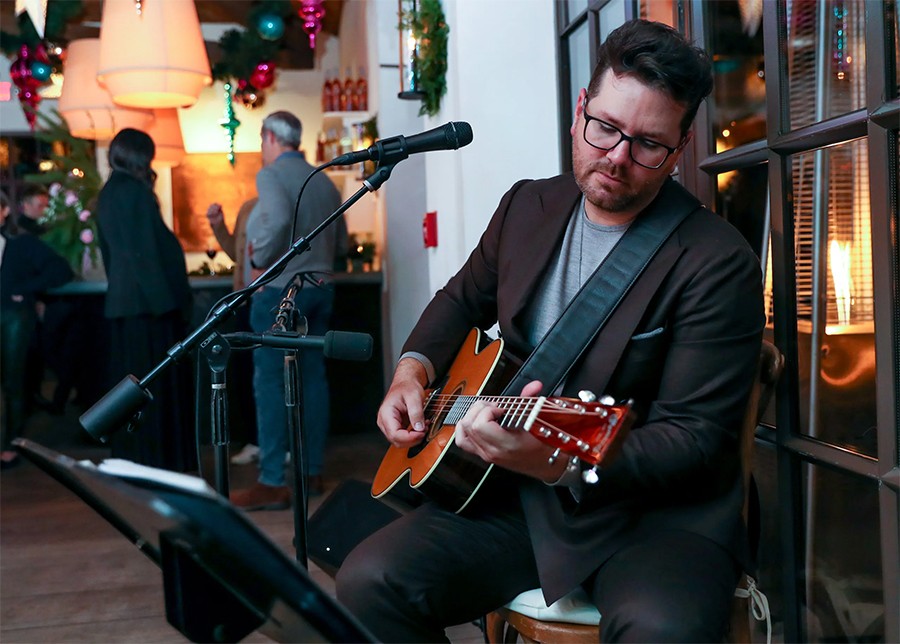Who's Here: Tom Nagorski, News Man

Often “less is more,” says Tom Nagorski, a resident of East Quogue and, since May 2010, Foreign Managing Editor for International Coverage at ABC News. He was referring to what reporters say on air. Networks tend to show similar images, but he believes that what his correspondents do with the “gift of words” often distinguishes ABC’s international news coverage. Though ABC audiences are generally down from a few years ago, they’re still sizable. “Nightline,” for instance, draws more viewers than the nightly comedy shows, and ABC, already ahead of CBS, is closing in on NBC in the audience for morning and nightly news. Attention to what’s said in addition to what’s shown on television comes naturally to Nagorski, whose 2006 nonfiction book, Miracles on the Water: The Heroic Survivors of a World War II U-Boat Attack, demonstrates his own judicious prose style, as he tells the harrowing story of an incredible rescue with compelling drama and sensitive restraint, wearing his research and interviewing skills with confidence and ease. [expand]
It might be said that nature as well as nurture determined Nagorski’s international journalistic direction. He grew up in Peter Cooper Village, in Lower Manhattan, a house away from Bohdan Nagorski, his great uncle, who was one of the survivors of Lifeboat No. 12 featured in Miracles on the Water. Bohdan, who was a civil engineer and had been Polish director of the Port of the Free City of Danzing, later worked for the United Nations building ports and harbors, including Aqaba in Jordan. Tom Nagorski spent summers with Bohdan’s children, Barbara and Chris, in Hampton Bays (at Ponquogue Beach), not far from where he now spends summers with his own children. Barbara’s son, Adam Wierzbianski, a scriptwriter, was a close friend; Barbara’s husband was editor of a Polish-language newspaper based in New York.
A graduate of Trinity School on the Upper West Side, Nagorski, 49, went to Princeton as an English major, focusing on creative writing. He was always “passionate about the rest of the world,” he says, no doubt because his “parents were European (Mom from Oslo, Dad from Warsaw)” and because his father’s job in sales for Swissair allowed for inexpensive, sometimes free, travel to Europe. As for journalism, he always “liked to hear stories, read stories and try my hand at telling them.” His older cousin, Andy, became a foreign correspondent at Newsweek and Tom often thought that would be “an interesting path to follow.” He interned for the investigative unit of ABC’s “20/20” the summer before his senior year of college and made contacts that served him well, being hired by ABC even before he was graduated.
It was winning a coveted Henry Luce Foundation Journalism Fellowship, however, when he was in his late twenties, that seems to have made a major difference in setting the course of Nagorski’s career as a foreign correspondent. Not keen on working in TV, he became an “on-loan reporter” for an English-language Thai newspaper, The [Bangkok] Nation , a wonderful opportunity that opened him up to training as a daily reporter, and in a unique culture, and, as it turned out, at a unique moment in the country’s history – the 1988-89 bloody national public uprisings. He modestly says that the newspaper got a dedicated staff member.
An understated professionalism also informs Nagorski’s workplace. A multiple award-winning reporter, editor and producer for close to 30 years (he assigned and edited stories for “World News Tonight” with Peter Jennings, and later, also, with Charles Gibson and Diane Sawyer), he now manages ABC correspondents, producers, stringers and technical teams around the globe. His office, however, is a small room without self-advertisement, a main wall decoration being a map of South Africa. His East End home is far from the madding crowd, a kind of “anti-Hamptons” retreat near the water, which he loves. He describes his new position simply as “a management job.” Of earlier senior positions, he notes that as producer and radio correspondent for ABC News in Moscow, Warsaw and Berlin, he had been “tethered” to a particular part of the world (he is fluent in French and Russian, and conversant in Polish, German and Thai). Now, the world is his beat.
Nagorski could not have assumed the Foreign Editor position at a headier time. He’s still surprised, he says, at how much news has been exploding in just the last few months—the Arab Spring (Parts A, B, C . . .), Afghanistan, Pakistan, the tsunami, earthquake, then nuclear melt down in Japan, the killing of Bin Laden—“gigantic history-making events that tested news organization in ways they had not been tested since 9 /11.” He occasionally slept in the office and felt like “a marathon runner who thought the finish line was near, only to find out he had to keep going. ” He recalls how on the first of May on the tarmac at John F. Kennedy Airport, waiting to take off for Afghanistan and Pakistan, he got word that the capture of Bin Laden might be imminent and for the first time in his life, asked to be taken off the plane. It was a “mind-boggling” time, a “volcanic avalanche” of stories of international significance tumbling out at an incredible pace, arguably more challenging than 1989 and the fall of the Soviet Union, which tended to be peaceful and celebratory. He wonders how ABC will put together its usual end-of-the-year-special, given how much news 2011 has brought. But, of course, he knows they’ll do it, even as they ready for more sudden turns.
Although he has total oversight on all business and editorial matters regarding foreign news, Nagorski regards much of his job as advocating for more international coverage, especially when the stories aren’t quite so earth-shattering because he’s “passionate about it—and always think it deserves more time and attention.” He’s aware, of course, that because TV programs have space limits, a good background story or general essay on a timely subject might not make it on air, whereas bloggers face no such constraints. Incidentally, he does not subscribe to the view that online news junkies have shorter attention spans and less interest in substance than broadcast watchers. In the old days, the board might light up after a particular event. Now, however, bloggers seem to move at the speed of light, all the time. Managing Editor Nagorski also has to ensure that assignments are made to places that may not yet be well known, as was the case with Kabul and Islamabad, not too long ago. No doubt he will handle these challenges in ways that will win the network even more Emmys, though one suspects that this most accomplished and modest man will likely forego award pictures and trophies for more maps.



